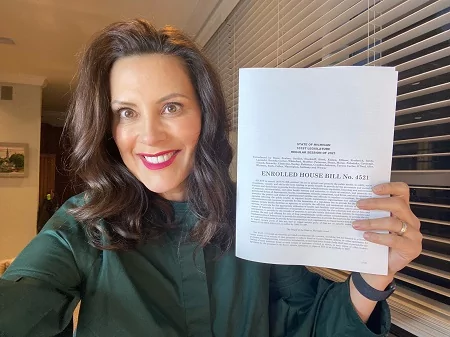Legislation enables organ transplants from HIV-positive donors to HIV-positive patients
Ann Arbor, MI – The HIV Organ Policy Equity (HOPE) Act is now law in Michigan. Governor Gretchen Whitmer signed the legislation in December, with a formal signing ceremony tentatively scheduled for early next year.
“We thank Governor Whitmer for signing the HOPE Act into law,” said Dorrie Dils, CEO of Gift of Life Michigan. “Before the HOPE Act, Gift of Life Michigan had to send organs from HIV-positive patients out of state instead of saving HIV-positive patients here in Michigan. The HOPE Act, introduced by State Rep. Felicia Brabec and now signed into law, would remove that restriction.”
The HOPE Act was approved in 2013 and enacted nationally in 2015, but efforts to enact it here in Michigan have been unsuccessful. Brabec (D-Pittsfield Township), who serves on the Health and Human Services Appropriations Subcommittee, introduced it in the House of Representatives in March and it was approved by the House in July. The Michigan Senate approved it in November.
“We are so fortunate to live in a state that is home to talented medical researchers and transplant teams who work every day to improve the science of saving lives through organ donation,” she said at the time. “This bill simply brings the state in line with federal law and frees up additional organs for Michiganders.”
Since 2015, 21 states and the District of Columbia have adopted the legislation. Transplants between HIV-positive donors and HIV-positive patients now take place at 36 hospitals and transplant centers across the country.
“This law will benefit Michigan patients, bring the state in line with federal law, increase efficiency, and give hope to residents waiting for these gifts,” said Dils. “Every time someone in our state receives a life-saving transplant, one less person is waiting, and there is more hope for those still in need.”
Learn more about the advocacy effort that went into passing the HOPE Act on the video below.










